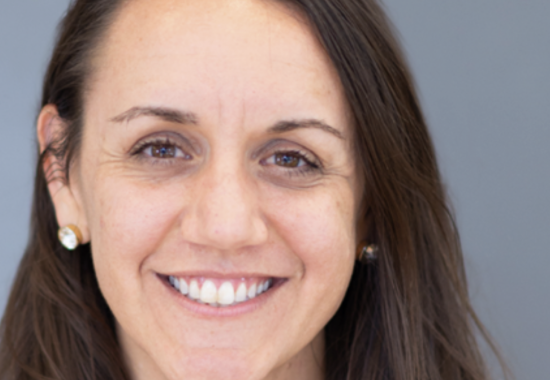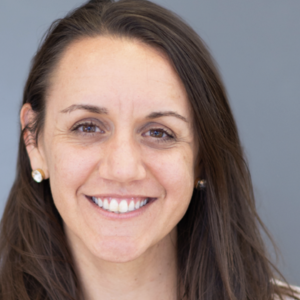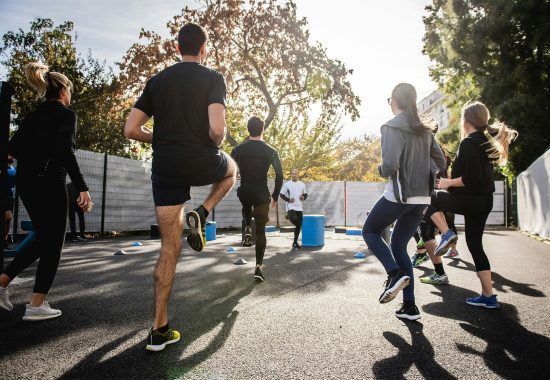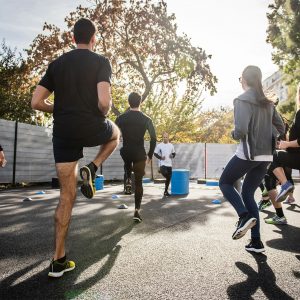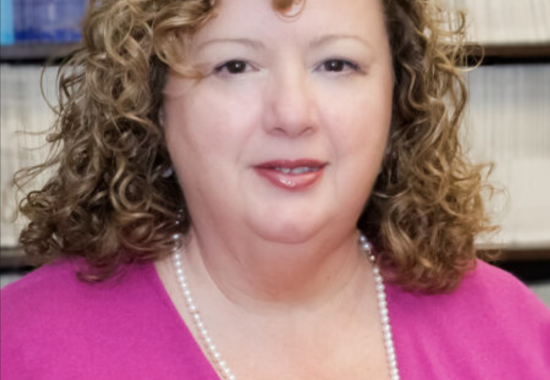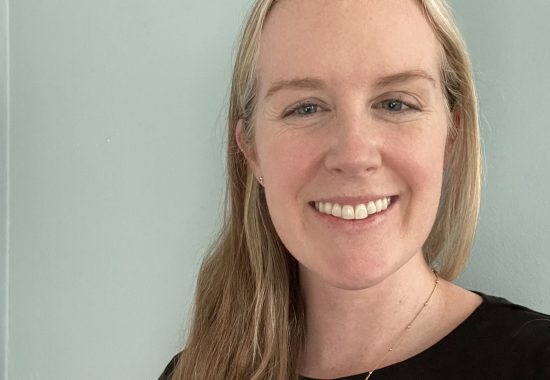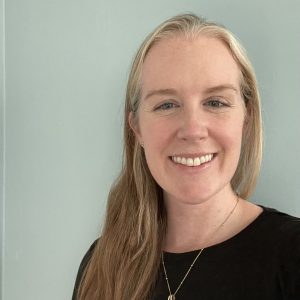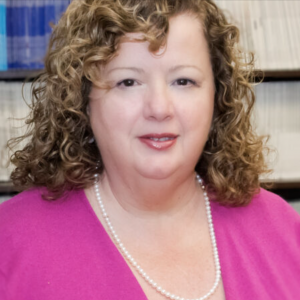
Brain injury is a chronic condition. However, many people think about a brain injury as a single, isolated event from which a person fully recovers. This incorrect perception is something that Monica Vaccaro, M.S., is determined to change. Ms. Vaccaro is a Research Associate at MRRI as well as the Director of Programs at the Brain Injury Association of Pennsylvania, a non-profit organization dedicated to preventing brain injuries and fostering an inclusive community of education, advocacy, support, and research to maximize quality of life for people with brain injuries and their families.
At MRRI, Ms. Vaccaro works in the Brain Injury Neuropsychology Laboratory directed by Amanda Rabinowitz, PhD. In this role, Ms. Vaccaro assists with clinical trials of potential treatments for brain injury rehabilitation, co-chairs the Advisory Council, represents the Moss TBI Model System on the Pennsylvania Department of Health Brain Injury Advisory Board, helps with planning an annual consumer conference, and coordinates focus groups with individuals with brain injury and their caregivers.
“The persons with lived experience with brain injury (the survivors and their family members), their stories, their experiences — that’s what drives me. Because in my role, I get to directly interact with people with lived experience all the time, and they really inspire me. It’s a group of people who are brave, navigating a difficult world, and doing so many wonderful things,” Ms. Vaccaro explained.
Ms. Vaccaro’s Path To a Career in Brain Injury
Her career began in education, and Ms. Vaccaro spent about ten years as a teacher for children in preschool through fifth grade with significant learning disabilities. During her time as a teacher, Ms. Vaccaro became fascinated by the kinds of errors she saw her students making, and she wanted to learn more about the brain and how disabilities could impact learning. She decided to go back to school to study the brain and neuropsychology.
As a student, Ms. Vaccaro had an opportunity to work at Einstein Healthcare Network and Moss in the early 1990s through a pre-doctoral clerkship program. This experience allowed her to conduct inpatient neuropsychological evaluations, and it was a major turning point in her career. Working with patients was powerful and eye-opening. After her internship, Ms. Vaccaro accepted a position in the inpatient unit of the hospital, and she worked there for years before transitioning to directing an outpatient program, and then moving into research at MRRI.
After more than three decades of working with people with brain injuries, Ms. Vaccaro has important insights into the needs of the brain injury community that remain unaddressed. These include greater awareness of brain injury as a chronic condition, funding for brain injury research and resources,
Raising Awareness About Brain Injury
While Ms. Vaccaro and many others are committed to increasing awareness of brain injury year-round, brain injury awareness and advocacy efforts are particularly concentrated during the month of March as The Brain Injury Association of America leads nationwide efforts in observing Brain Injury Awareness Month. A key goal of these efforts is to change the public perception of brain injury from thinking about it as one transient event to understanding that it is a chronic condition. After experiencing a brain injury, individuals can show substantial improvements in the acute phase, but many may take longer to recover or may have life-long impairments.
It is critical for the public, as well as legislators and other policymakers to realize that many people with brain injury require ongoing treatment and services for a long time. Currently, traumatic brain injury is not recognized as a chronic condition by either the Centers for Disease Control (CDC) or Centers for Medicare & Medicaid Services (CMS), and this has a detrimental impact on the availability and affordability of long-term care for people with brain injury, as well as funding to support brain injury research and resources.
Advocating for More Funding for Brain Injury Research, Resources, and Clinical Care
Recently, Ms. Vaccaro joined others from the Brain Injury Association of America and the brain injury community in participating in a rally on Capitol Hill for Brain Injury Awareness day on March 5, 2024. One of their goals was to encourage legislators to reauthorize the Traumatic Brain Injury (TBI) Act which was signed into law in 1996. The most recent TBI Program Reauthorization Act in 2018 ensures funding of the Program through 2024. Brain injury advocates are hoping to include language in a new reauthorization act that would add brain injury to the CDC and CMS’s list of chronic conditions.
The TBI Act also provides funding to states to support brain injury resources and initiatives. In Pennsylvania, the Department of Health has received funding to develop infrastructure that is crucial for serving the needs of people with brain injuries and their families. For example, the Pennsylvania Department of Health has contracted with the Brain Injury Association of Pennsylvania to provide education and training about brain injury to professionals in the community who will come into contact with individuals with brain injury in their everyday work, including counselors, nurses, general practitioners, first responders, law enforcement, and others. The Brain Injury Association of Pennsylvania also operates the Brain Injury Resource Line, which is a venue for people from the community to call in with questions and learn about resources. Another key program in Pennsylvania supported by funding from the TBI Act is the NeuroResource Facilitation Program for Brain Injury Services which helps people with brain injury and their families identify and navigate brain injury resources, services, and supports.
In addition, during her visit to Capitol Hill, Ms. Vaccaro shared important work being done by the TBI Model Systems nationwide, including at the Moss TBI Model System, and requested additional funding to support these critical efforts to advance brain injury research and clinical care. Further research, including research being done at MRRI, is critical for understanding which interventions are effective and ensuring that people with brain injury can access effective interventions that are developed.
Thinking about other areas of need, Ms. Vaccaro highlighted the importance of providing services to marginalized populations, including individuals with brain injury in the justice system, those with mental health conditions, and people who are homeless or have housing insecurity. She would also like to see funds budgeted at the state level for services such as conferences, information lines, support groups, or other necessary resources.
Ms. Vaccaro is part of a coalition of stakeholders working with policymakers in Pennsylvania to try to get funding to support clinical care beyond acute inpatient rehabilitation. Currently, there is limited funding to support outpatient rehabilitation and post-acute care, so many individuals with brain injury are not getting the care they need. To address this care gap, the coalition has proposed a plan for commercial insurance providers to pay for post-acute rehabilitation services for brain injury. “This, again, emphasizes that brain injury is a chronic condition. It isn’t over after a person leaves the acute care setting,” Ms. Vaccaro stated.
As part of The Brain Injury Association of America’s Brain Injury Awareness Month Campaign, they are asking people with brain injury to share their story to help reinforce the chronic nature of brain injury. “Brain injury is a lifelong journey for many people,” Ms. Vaccaro reflected. Visit The Brain Injury Association of America’s website to learn more about the Brain Injury Awareness Month Campaign and read some of these stories.

